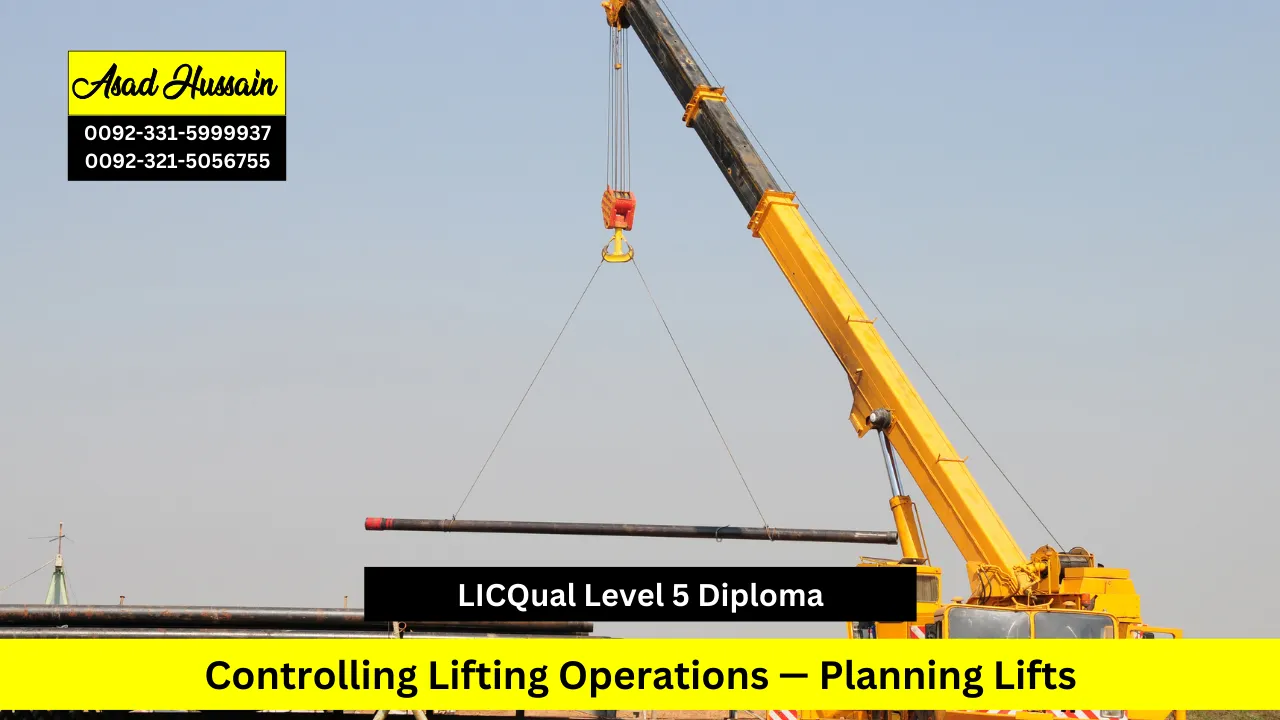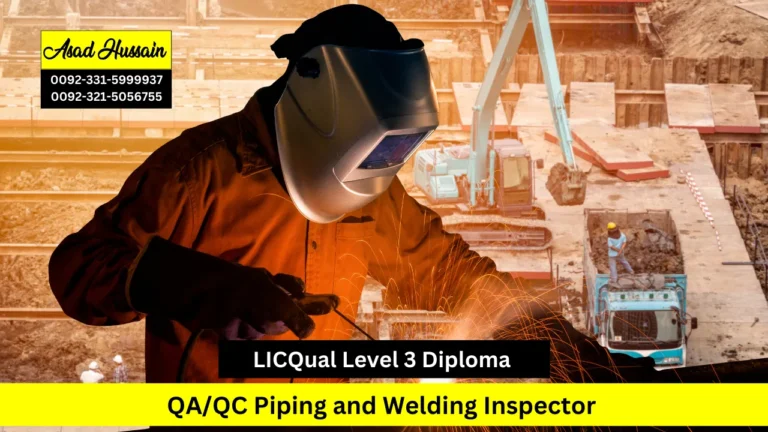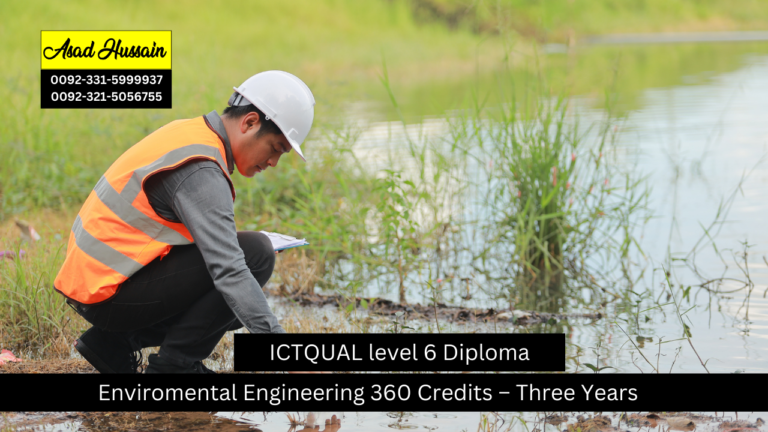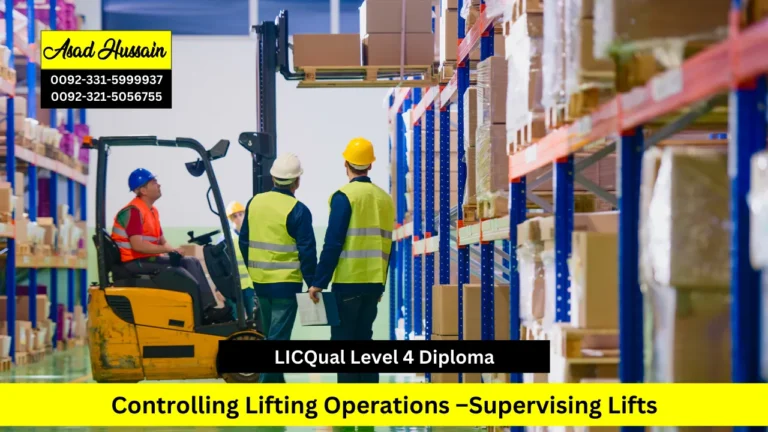The LICQual Level 5 Diploma in Controlling Lifting Operations — Planning Lifts is an advanced professional qualification designed for individuals responsible for the strategic planning and management of lifting operations in complex industrial environments. In industries such as construction, oil and gas, logistics, and heavy engineering, the ability to plan lifts safely, efficiently, and in compliance with international standards is critical to protecting personnel, equipment, and assets.
The purpose of LICQual Level 5 Diploma in Controlling Lifting Operations — Planning Lifts is to equip learners with the advanced skills required to design, plan, and oversee lifting operations, incorporating risk assessment, regulatory compliance, and operational coordination. Participants will gain a deep understanding of load dynamics, lifting methods, equipment selection, and project-specific planning considerations.
Through a combination of theoretical instruction and practical applications, learners will develop the competence to prepare lift plans, analyse potential hazards, coordinate multi-disciplinary teams, and implement safety management systems. LICQual Level 5 Diploma in Controlling Lifting Operations — Planning Lifts ensures that graduates can take full responsibility for planning and controlling lifting operations, ensuring operational efficiency while maintaining the highest safety standards.
Completing the LICQual Level 5 Diploma in Controlling Lifting Operations — Planning Lifts positions learners for senior supervisory and management roles, offering enhanced career opportunities and internationally recognised credentials in the field of industrial lifting operations and safety management.
Program Highlights
Mandatory Units
- Legal and Regulatory Framework for Lifting Operations
- Risk Assessment and Management in Lifting Operations
- Planning and Organizing Complex Lifts
- Lifting Equipment and Resources
- Effective Communication and Coordination in Lifting Operations
- Evaluation and Continuous Improvement of Lifting Operations
The entry requirements for the LICQual Level 5 Diploma in Controlling Lifting Operations — Planning Lifts are designed to ensure that learners are fully prepared to engage with advanced content and succeed in practical and theoretical assessments. These requirements provide a balance between accessibility and maintaining the integrity and quality of the programme.
Age Requirements
- Learners must be at least 21 years old at the time of enrolment.
Educational Requirements
- A Level 4 qualification (or equivalent) in lifting operations, construction, engineering, or health and safety is preferred.
- Candidates with substantial vocational training in lifting operations or workplace safety may also be considered.
Professional Experience
- Prior experience in lifting operations, site management, or supervisory roles is highly recommended.
- Professionals seeking to progress into planning and strategic management roles in lifting operations are ideal candidates.
English Language Proficiency
- Learners should demonstrate proficiency in English for technical reading, report writing, and team communication.
- International candidates may be asked to provide proof of English proficiency, such as IELTS 6.0 or equivalent, if English is not their first language.
These entry requirements are structured to maintain high academic and professional standards while offering opportunities for motivated learners to enter the programme. By meeting these criteria, participants are equipped to maximise learning outcomes and apply their advanced skills effectively in real-world lifting operations and industrial project management.
The LICQual Level 5 Diploma in Controlling Lifting Operations — Planning Lifts equips learners with advanced knowledge and practical skills to plan, manage, and optimise complex lifting operations. By completing this diploma, learners will develop the ability to implement best practices, ensure compliance, and lead multi-disciplinary teams effectively in high-risk industrial environments.
Legal and Regulatory Framework for Lifting Operations
- Interpret national and international legislation and standards governing lifting operations.
- Apply legal requirements to ensure compliance in planning and executing lifts.
- Evaluate the consequences of non-compliance for organisations and personnel.
- Integrate statutory requirements into operational planning and decision-making.
- Maintain accurate documentation to demonstrate regulatory adherence.
Risk Assessment and Management in Lifting Operations
- Conduct comprehensive risk assessments for complex lifting operations.
- Identify, evaluate, and prioritise hazards associated with lifting tasks.
- Develop and implement control measures to mitigate identified risks.
- Monitor and review risk management strategies to ensure ongoing safety.
- Apply risk assessment findings to optimise lift planning and operational efficiency.
Planning and Organizing Complex Lifts
- Prepare detailed lift plans considering load characteristics, site conditions, and resources.
- Apply project management techniques to coordinate multiple lifting activities.
- Allocate tasks and responsibilities to team members effectively.
- Assess environmental and operational factors affecting lift feasibility.
- Integrate contingency planning to address unforeseen operational challenges.
Lifting Equipment and Resources
- Identify and select suitable lifting equipment for different types of lifts.
- Evaluate equipment capabilities and limitations to ensure safe operations.
- Plan for the effective allocation and deployment of resources, including personnel and machinery.
- Implement inspection and maintenance protocols to maintain equipment reliability.
- Optimise equipment utilisation for efficiency and safety.
Effective Communication and Coordination in Lifting Operations
- Facilitate clear communication among operators, riggers, and supervisors during complex lifts.
- Use verbal, non-verbal, and technical communication tools effectively.
- Coordinate interdisciplinary teams to maintain workflow and safety standards.
- Resolve operational conflicts and ensure timely information flow.
- Lead team briefings and debriefings to enhance operational performance.
Evaluation and Continuous Improvement of Lifting Operations
- Analyse lift outcomes to identify successes and areas for improvement.
- Implement feedback mechanisms to enhance operational planning and safety.
- Develop strategies for continuous improvement in lifting processes.
- Apply lessons learned to future lift operations to reduce risks and improve efficiency.
- Maintain records and reports to support ongoing organisational learning.
Upon completion, learners will be fully prepared to plan and control complex lifting operations with confidence, ensuring safety, compliance, and operational efficiency in industrial environments.
The LICQual Level 5 Diploma in Controlling Lifting Operations — Planning Lifts is suitable for professionals seeking senior-level expertise in planning, coordinating, and managing industrial lifting operations.
Senior Supervisors and Team Leaders
- Professionals responsible for overseeing large-scale lifting operations and ensuring operational safety.
- Individuals seeking to advance their career from supervisory to strategic management roles.
Health and Safety Officers
- Professionals managing workplace safety and compliance in industrial projects.
- Learners aiming to integrate advanced planning and risk management into organisational safety strategies.
Operations and Project Managers
- Individuals coordinating multi-disciplinary teams on complex industrial sites.
- Learners seeking skills to optimise resources and streamline lift planning and execution.
Equipment and Lifting Specialists
- Experienced operators or riggers looking to expand into planning and management roles.
- Individuals aiming to develop expertise in resource allocation, equipment selection, and operational efficiency.
Aspiring Senior Lifting Professionals
- Learners entering high-level industrial supervision and planning roles.
- Individuals seeking internationally recognised qualifications to enhance professional credibility.
The LICQual Level 5 Diploma in Controlling Lifting Operations — Planning Lifts provides learners with advanced strategic, technical, and leadership skills, preparing them to manage complex lifts safely and efficiently in high-risk industrial settings.







